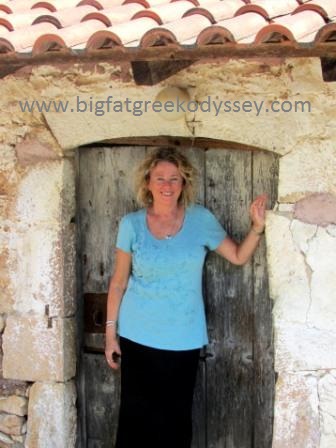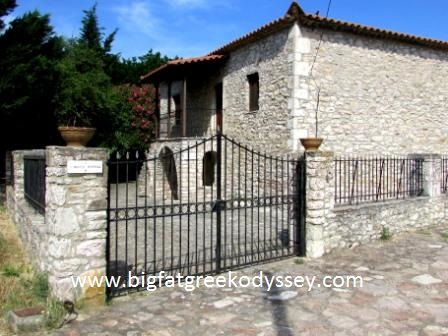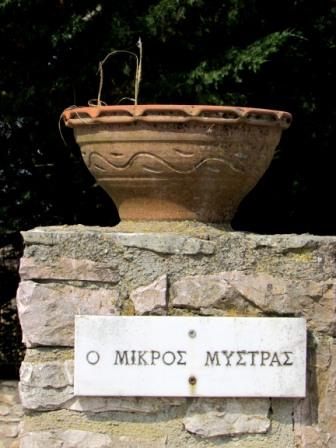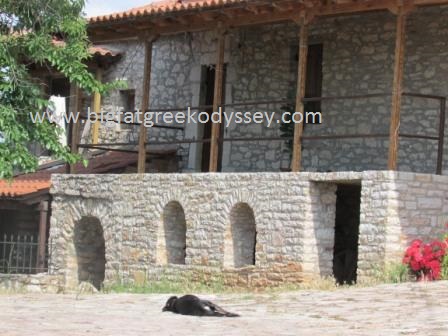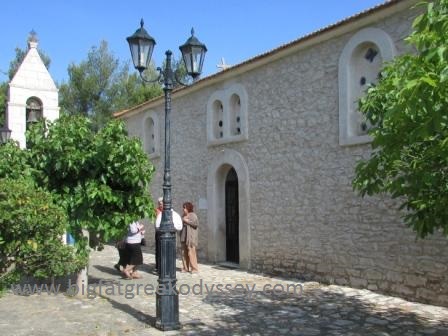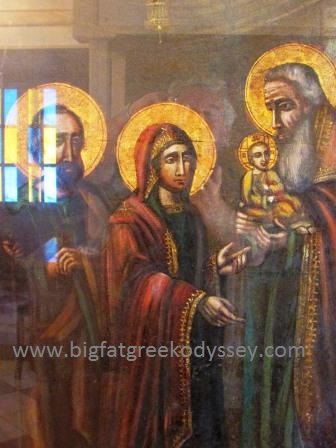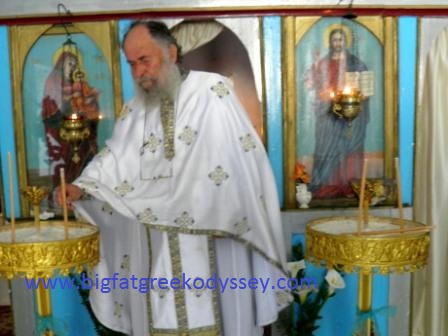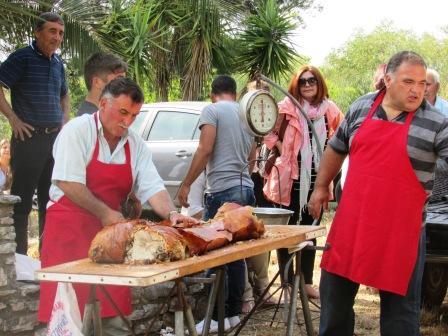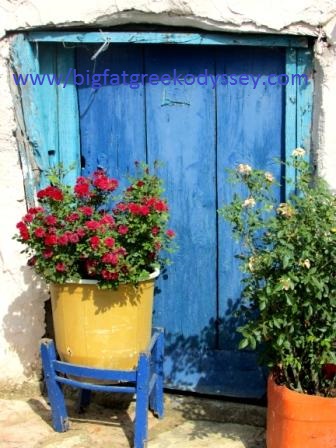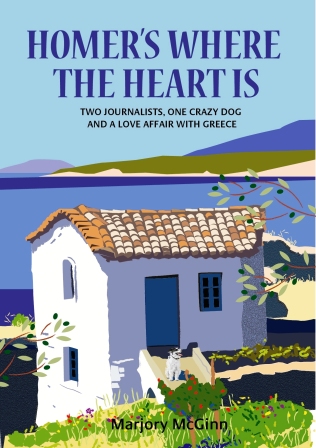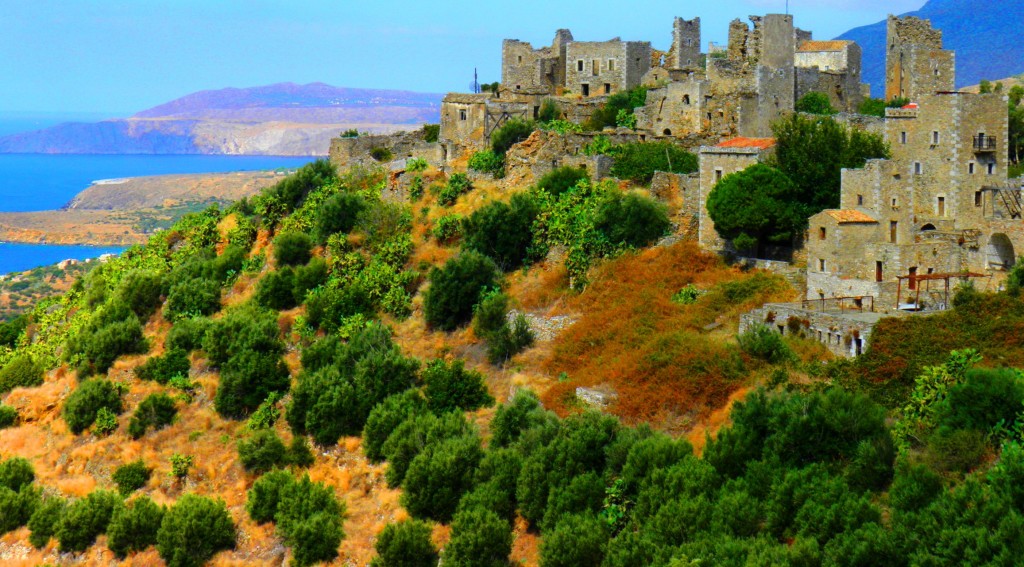WE were recently invited to a village church on a Sunday morning by a local papas (priest), who promised there would be a lovely service. The church of Ayia Triada was celebrating the national feast day of the Holy Spirit (To Ayio Pnevma), which is part of the important Pentecost period in the Greek Orthodox Church.
We’d never visited the old and rather remote village of Mistraki, though we knew roughly where it was, and planned to get there by 8.45am for the last hour of the service. It was a pleasant drive on a sunny day up through the hills, where there are only a few scattered villages, with views down to the Messinian Gulf.
When we got to Mistraki, however, the village seemed deserted. Not a soul about, apart from two huge dogs lying across the dusty road. All the houses were shuttered and there was no church in sight, or even a kafeneio. No signs of life.
We parked the car and walked about from one end of the village to the other. It’s a tiny place with lovely old houses, mostly dating from the early 18th century. Many have been restored to their original glory but a few others lie in ruins. But where was the church?
It was past 8.45 when we began to walk up dirt tracks out of the village, looking for signs of a church dome peeking up from the trees, listening for the sound of chanting, but every path yielded nothing but more houses and goat farms. This was curious. Had we got the name of the village wrong? Was the church hidden deep in the fold of a hill?
After nine o’clock, we were still wandering about, convinced that having come all this way we would miss the service, and the small yiorti (festivity) we anticipated afterwards. We were disappointed.
“Let’s hope the Holy Spirit’s looking out for us and we’ll get a sign,” said Jim, more in a jokey, bantering way, as on our long odysseys in Greece we’ve always tried to make light of most difficulties we’ve encountered along the way, big and small. We trudged around a bit more. It was getting hot and we decided we’d have to give up soon and retreat.
Jim suddenly stopped and cocked his head slightly. “I can hear a tractor in the distance.”
He started running through the village, waking up dozing dogs and scattering dust, with me trotting on behind, trying to keep my best sandals from disappearing down potholes. Sure enough, I could hear it too and we sprinted up to the ‘main’ road just as a tractor with two men on board was rumbling by. We shouted and waved our arms, and thankfully the tractor stopped. The two men looked amused when we asked where the church was.
“It’s just through there,” said one guy in overalls, “Five minutes’ walk away.”
They directed us to the one dirt road we hadn’t tried yet, unsignposted, but with the remains of an old spring water outlet on the corner, which should have alerted us to a church nearby.
We thanked them and rushed along the track until the church appeared, in a clearing amid tall trees. The faintest sounds of chanting reached us now. We were late, but all was far from lost.
“Well Marj!” said Jim. “Did the Holy Spirit come to the rescue or what?”
I laughed. “Probably! It was a nice touch though, wasn’t it, sweeping in on a tractor. Very appropriate.”
We burst into the church, a bit out of breath. Heads swivelled our way, and we were surprised to find a big turnout of locals in this old, restored church, with some lovely icons. And Papa Theodoros, dressed in his ornamental robe, was in fine voice, particularly at the end of the service, offering a spine-tingling crescendo to the chanting.
This is an important service and celebration, coming on Monday, June 1, the day after the Pentakosti, the Pentecost, which falls 50 days after Easter Sunday and commemorates the descent of the Holy Spirit on Christ’s disciples.
After the service, the congregation gathered in the forecourt. These were locals, from several outlying villages too, who were among some of the friendliest people we had met in this part of Greece, near Koroni. They wished us ‘chronia polla’ (many years) and a good month, ‘kalo mina’. They were chatty and keen to know where we were from and what our impressions were of Greece. They were at least able to explain why Mistraki seemed deserted. There are now, sadly, only seven permanent residents left in this village, and they were all at the service.
At the edge of the forecourt, two men had set up a trestle table, with a whole roast pig on top, complete with head, and carved into chunks, and a set of scales nearby. The meat was not all destined for this venue, however, as the pair with their ‘roaming roasts’ would visit other locations that day for other yiortes.
The air was full of the succulent aroma of spit-roasted meat, yet there were no other signs in the forecourt of a yiorti – chairs, tables, or drinks – until the papas came rushing out of the church, dressed down in his black robe and, curiously, carrying a bulging plastic bag.
“Elate,” he called to us, with a wave, herding us towards a low stone wall under the trees. Perhaps because we were foreigners, ‘guests’, we were asked to sit down first and the papas unscrewed a large plastic bottle filled with local, honey-coloured wine and put a liberal dash in our plastic cups.
There was a lot of banter and laughter from the rest of the congregation behind him, watching as he pulled things from his bag: chunks of bread, sweet tomatoes, and goat cheese, paper plates, serviettes. Someone was summoned to collect a huge chunk of roast pork, wrapped in thick paper. It was placed on the wall and opened up for everyone to help themselves, and the wine was shared around.
It was an impromtu feast, and one of the nicest yiortes we had been to for its spontaneity and warmth, and its Biblical simplicity. Papa Theodoros is like no other priest we have met in Greece, and we were introduced to him months earlier while trying to find the key holder for a local Byzantine monastery. He is warm and approachable and has a nice sense of humour.
Although in his late 60s, I would guess, he would also be one of the hardest working priests in this area, with three or four churches to preside over, as well as a nearby monastery. Due to cutbacks during the economic crisis, few retiring priests are ever replaced in villages.
The time had passed all too quickly and people left with kind wishes for the rest of our stay in Koroni.
“Tou chronou, next year,” they said, a common expression meaning that we would hopefully all do the same again next year.
Indeed, I think we will. Next time, we may be less in need of the Holy Spirit, at least on church-finding missions.
Homer’s Where the Heart Is
To read more about village life in the southern Peloponnese and how the economic crisis has impacted on Greece, read my new travel memoir Homer’s Where the Heart Is. This is the sequel to my first memoir, Things Can Only Get Feta (first published in 2013) about the start of our three-year adventure living in the rural Mani.
To those who have already read the latest book, thanks for your kind comments and Amazon reviews, which are always appreciated.
Both books are available on all Amazon’s international sites. However, several Greek friends and readers have asked about buying the latest book in Greece. Apart from Amazon and the Book Depository www.bookdepository.com (with free overseas postage), Homer’s Where the Heart Is is not currently in bookshops in Greece.
However, if you inquire at any Public bookstore www.public.gr (some of which stock Things Can Only Get Feta), you may be able to arrange for the store to order the paperback from Amazon. And some independent bookstores will also do the same for you. I will offer more advice on this in the months to come.
If any readers have queries about availability for both books, please contact me via the contact page on our website www.bigfatgreekodyssey.com where you will also find a ‘books’ page with other information about the books.
I have had some very favourable comments also about the design and layout of Homer’s Where the Heart Is and for that I would like to thank the expert skills of ex-journalist Jim Bruce. Jim’s book editing and formatting operation, called ebooklover www.ebooklover.co.uk can help both indie authors and those seeking publishers. Jim can get your manuscript ready and in perfect shape for presenting to publishers, which is a great help in this highly competitive publishing market right now.
To buy either of my books please click on the Amazon link below:
You can also find me on Twitter @fatgreekodyssey
And Facebook www.facebook.com/ThingsCanOnlyGetFeta
www.facebook.com/HomersWhereTheHeartIs
Thanks for calling by.
© All rights reserved. Text and photographs copyright of the authors 2015. No content/text or photographs may be copied from the blog without the prior written permission of the authors. This applies to all posts on the blog.
